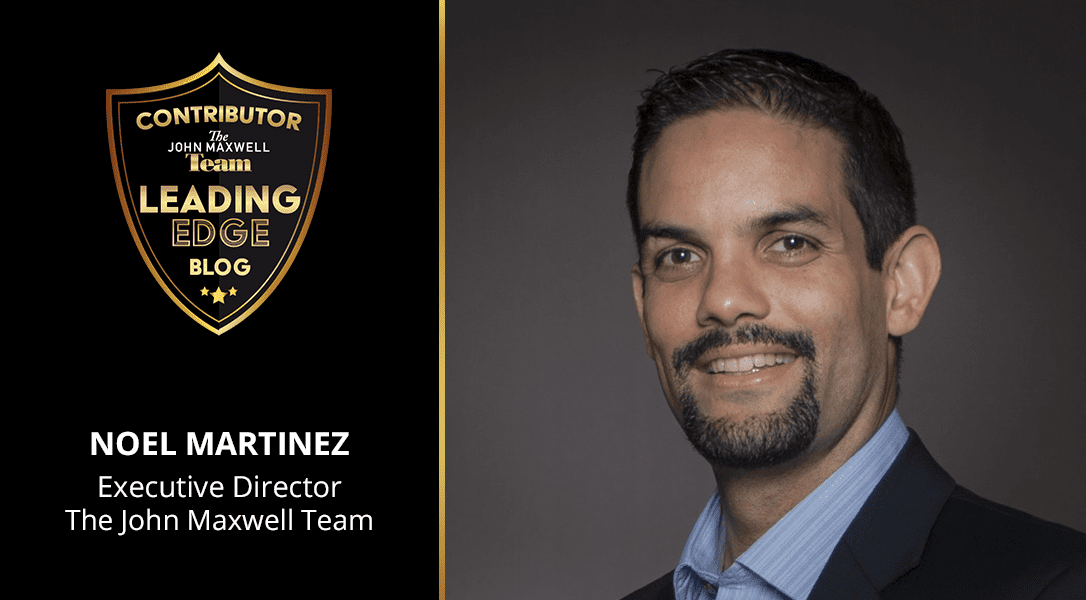The Leading Edge: The Key for Connecting – Kindness Over Courtesy

By: Noel Martinez
Are you sure people understand your message the way you intend it? Using the “right words” in the right context, in my experience, is not enough. Being polite and courteous, for example, is necessary but not sufficient to establish a sound communication. In other words, paraphrasing my friend John C. Maxwell, we all can talk–everyone communicates, but few connect.
There are several qualities and skills a leader must have, learn and develop: character, commitment, courage, generosity, initiative, passion, vision, among several others. It is important that we are aware them, learning our strong and weak points, if we are to lead efficiently.
However, many leaders usually undervalue the fact that the major purpose of developing those abilities is: Connecting with people. Do you want to lead? You need to connect. You have to be intentional and learn to communicate in the way they want to, not your way. You have to meet them where they are.
When we want to connect, we must consider several elements. One of them is the communication codes shared within the organization or group we want to join and/or lead. These codes define what is right or wrong in support of the culture. They are perceived as courtesy signs that you have to be aware of and must respect.
But courtesy signs are not the same everywhere. Each group develops and protects their own codes. Even when there are some “universally” accepted standards, there is no guarantee they work the same way anywhere or with everyone. I learned it “the hard way.”
Several years ago, I thought I knew how to lead. And I actually did, in my old “Special-Forces-Unit-Leader” world. After 11 years in the Army, I learned our codes. They were so deep inside of me that I was not conscious of them, and I acted accordingly.
You know, in the Army, you are programmed to follow orders, period. When a superior tells you to do something, you just do it. There is no room for hesitation or questioning. However, higher officers attempt to maintain an image of being well-educated and polite. Therefore, when giving simple instructions or everyday requests, we used to add the word “please” to them.
So, it is normal to hear expressions like, “Hey private, tell Sergeant Smith to come here, please.” Even when you give a training-punishment order, you say, “Please, drop down, and give me 50 push-ups.”
When I left the Army, I started my MBA. I was using all my abilities to add value to the group and learn as much as possible, and I was also working to be the leader of my team. I felt I was charting the course. I was not imposing, but I was organizing and making sure things got done.
Everything was working smoothly, of course, under the enormous pressure that an MBA brings along. Until one night, about 2 am, one of my teammates snapped and out of nowhere yelled to me, “I am done with you. I can’t stand your attitude anymore. I don’t want to receive more orders from you.”
It shocked me. Of course, I replied, “I didn’t give an order. I said please.”
Then, as a thunder-strike, she said to me, “You may say the word, but you don’t mean it. You don’t ask for a favor. You just don’t know what it means to say please.” And boom! I was speechless and astonished.
In that very moment, I started thinking and reflecting. I realized she had a point. I spoke with my other teammates, and they said, “We just got used to you, but she is right.” They agreed I was a good asset, that I was a great teammate. But my style was “uncomfortable.”
I realized she was absolutely right; I became aware that I needed to change; I had to unlearn an old way and learn a new way of communicating to really add value to the team. I learned that “please” is just a word, and words are not enough.
The point is, after that episode, I realized how important it is to learn how to communicate with people. And, by people, I mean everyone as an individual. If you want to connect, you need to understand the other person’s codes. And you can only learn that intentionally.
When you care for others and want to add value to them, when you are willing to perform acts of kindness, when you get genuinely interested in people, their needs and interests, you can connect.
All in all, “kindness” is action; “please” is just a word. If you want to lead, you need to connect. In order to connect, perform acts of kindness before using words of courtesy. Because, as John says, “People do not remember what you say but how you make them feel.”
Do you want to connect? Be kind. Don’t simply say please.
Noel Martínez is a leadership and team coach, business development consultant and entrepreneurship mentor. Noel defines himself as a Conscious Change Catalyst since he is dedicated to support individuals and organizations to elevate their levels of awareness to improve their results.
Born and raised in Venezuela, Noel has traveled and lived in several countries, gathering experiences from personal, academic and professional worlds. This integration of the interaction with different cultures, various fields of studies and the diversity of organizations he has worked with, gives Noel a unique, yet very ample, understanding of the concept and applying of leadership.
Nowadays, Noel is a Certified Coach, Trainer and Speaker and Executive Director of The John Maxwell Team (JMT) and Founding Member of the JMT-Español. He is committed to taking advantage of the support of these organizations to teach and train leaders in Latin America, especially in Venezuela where the social crisis demands the raising of leadership to a superb level.
